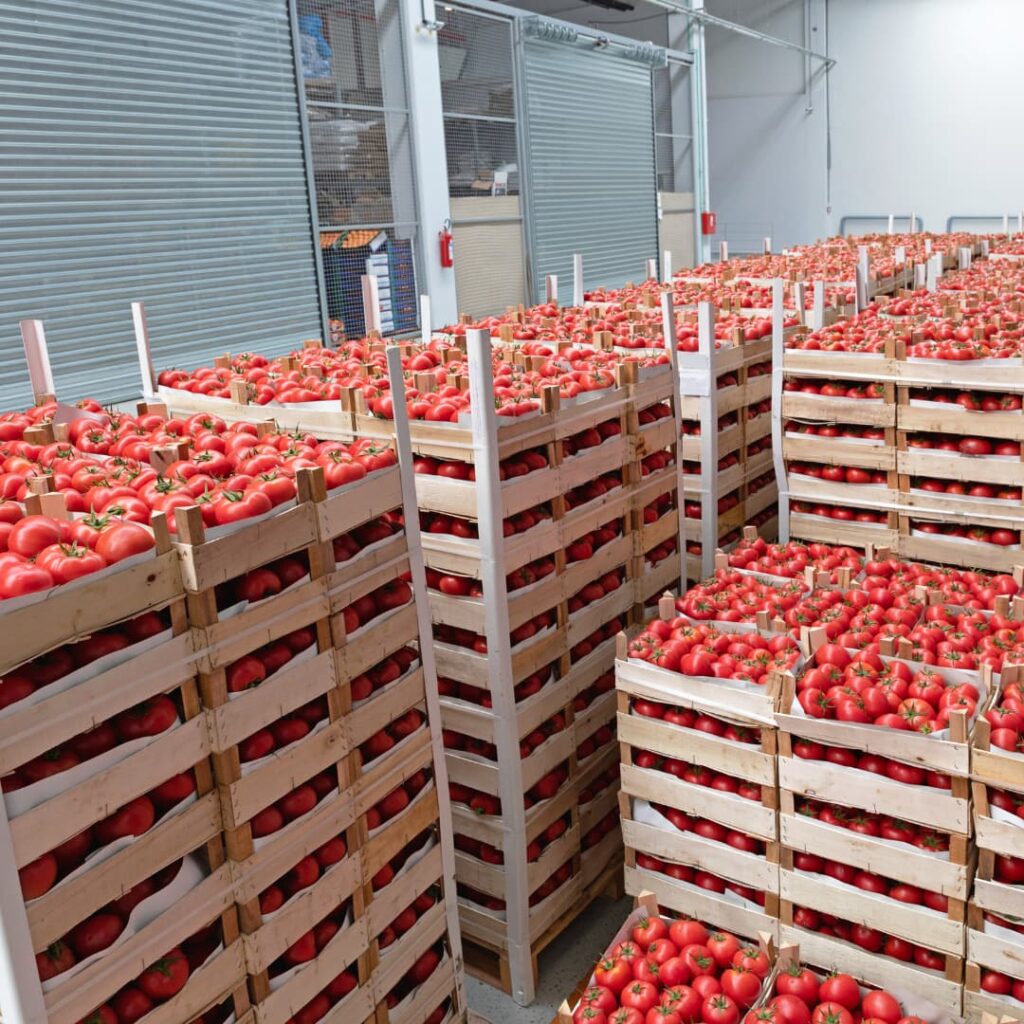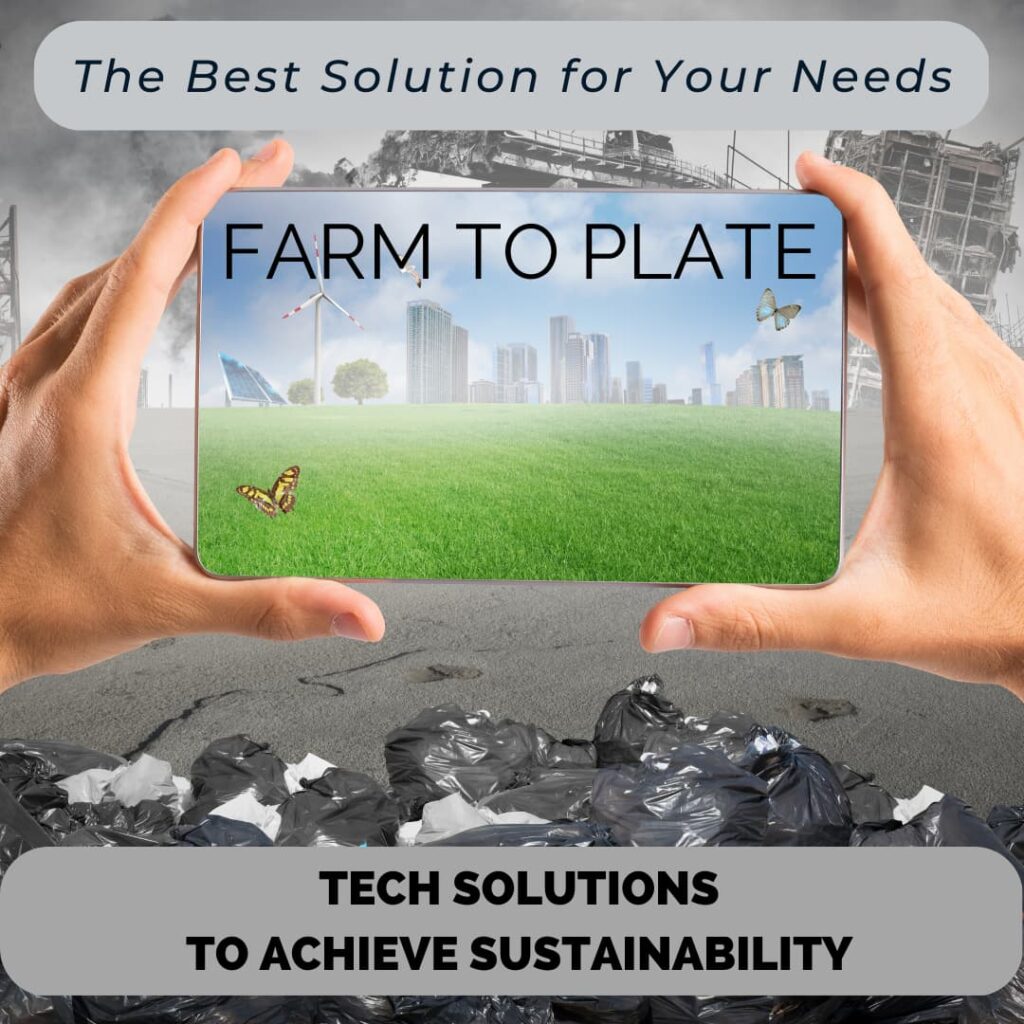Sustainability in the food supply chain is becoming increasingly important as consumers become more aware of the environmental impact of their food choices. From production to distribution and consumption, every step of the food supply chain affects the environment, and businesses must reduce their carbon footprint and promote sustainable practices.
Reduce food waste

One of the best ways to promote sustainability in the food supply chain is to reduce food waste. According to the United Nations Food and Agriculture Organization (FAO), around one-third of all global food is lost or wasted annually. It represents a substantial economic cost and has a significant environmental impact, contributing to greenhouse gas emissions and other environmental problems.
Businesses can adopt various best practices to reduce food waste, such as:
- Improving storage and transportation methods
- using data analytics to optimize inventory management
- implementing composting and recycling programs.
By reducing food waste, businesses can save money, reduce their environmental impact, and promote sustainability.
Eco-friendly production methods

Another critical area for promoting sustainability in the food supply chain is production methods. Traditional agriculture practices can be resource-intensive and environmentally damaging, contributing to soil erosion, water pollution, and deforestation.
Businesses can adopt more eco-friendly production methods like organic farming, agroforestry, and regenerative agriculture to prompt sustainability. These methods prioritize:
- Soil health
- Biodiversity
- Natural resource conservation
It helps to reduce the environmental impact of agriculture and promotes long-term sustainability. By adopting these practices, businesses can not only reduce their carbon footprint and improve the quality and safety of their products, which can lead to increased consumer trust and loyalty.
Reduce reliance on fossil fuels

In addition to production methods, businesses can promote sustainability in the food supply chain by reducing their reliance on fossil fuels. Transportation significantly contributes to greenhouse gas emissions in the food supply chain, and businesses can reduce their carbon footprint by adopting more sustainable transportation methods. It can include:
- Electric or hybrid vehicles
- Optimizing delivery routes to reduce emissions
- Promoting alternative transportation methods.
By reducing their reliance on fossil fuels, businesses can reduce their environmental impact, save money on fuel costs and improve their brand reputation.
Ethical sourcing practices

Another critical aspect of sustainability in the food supply chain is the promotion of ethical sourcing practices. Consumers are increasingly concerned about their food choices’ social and environmental impact, and businesses that prioritize ethical sourcing practices can differentiate themselves in a crowded market.
It can include sourcing ingredients from local or sustainable sources, promoting fair labor practices, and reducing the use of harmful chemicals and pesticides. Businesses can promote sustainability, build consumer trust, and improve their brand reputation by prioritizing ethical sourcing practices.
Engaging with stakeholders

Finally, businesses can promote sustainability in the food supply chain by engaging with stakeholders and promoting transparency. It can involve working with suppliers, customers, and other stakeholders to identify areas for improvement, sharing information on sustainability practices, and promoting transparency throughout the supply chain.
By engaging with stakeholders and promoting transparency, businesses can improve their sustainability practices and build relationships with key partners and stakeholders, leading to increased collaboration and innovation.
Tech Solutions to Achieve Sustainability

Farm to Plate tech solutions can help businesses promote sustainability in the food supply chain. It can record and track every step of the food supply chain, from production to distribution and consumption.
Reducing environmental impact
By leveraging blockchain technology, businesses can increase transparency and traceability throughout the supply chain, promoting sustainability and reducing environmental impact. For example, blockchain can track the origin of ingredients, monitor production methods, and ensure that products are transported using eco-friendly methods.
Quickly identify and address issues
In addition to promoting sustainability, our tech solution can help improve food safety and reduce food waste. By providing a complete record of every supply chain step, businesses can quickly identify and address issues like contamination or spoilage, reducing the risk of food waste and ensuring that products are safe for consumption.
Greater transparency, traceability, and accountability
Our tech solutions are a powerful tool for promoting sustainability in the food supply chain. By providing greater transparency, traceability, and accountability, businesses can reduce their environmental impact, improve food safety, and build trust with consumers increasingly concerned about their food choices’ social and environmental impact.
Conclusion

Sustainability is a critical issue in the food supply chain, and businesses must take steps to reduce their environmental impact and promote sustainable practices. By adopting best practices like reducing food waste, promoting eco-friendly production methods, reducing reliance on fossil fuels, prioritizing ethical sourcing practices, and engaging with stakeholders, businesses can promote sustainability and build a greener future for all.
Moreover, Farm to Plate tech solutions can be vital in promoting sustainability in the food supply chain. Businesses can reduce their environmental impact, improve food safety, and build consumer trust by providing greater transparency, traceability, and accountability.
As the food industry continues to evolve, it is clear that technology will play an increasingly important role in shaping its future. And with our tech solutions, businesses can stay ahead of the curve and promote sustainability in the food supply chain.
Namrata Anand, Technical Content Writer at Paramount Software Solutions & farmtoplate.io
